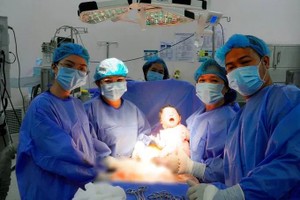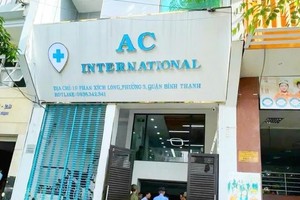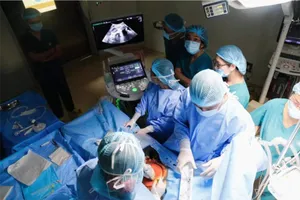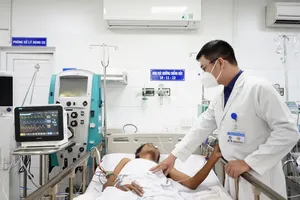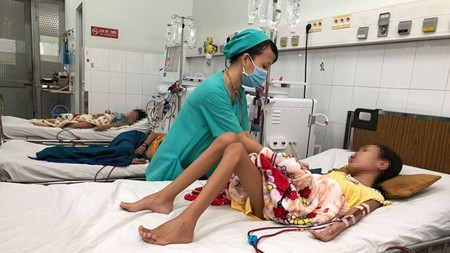
A long queue for organ transplant
14-year-old Nguyen Van Minh from Lam Dong Province was diagnosed to have kidney failure when he was 1 year old. Turning 7, he had the chronic renal failure and had to apply hemodialysis 3 times a week. He is yearning for a donated kidney to get well again. Another similar situation is 14-year-old To Cam Lua, living in Ca Mau Province. Enduring 6 years of hemodialysis, she is hopelessly waiting for a suitable organ for recovery. Ironically, her parents shared that although they had already asked doctors to use their own kidney for the transplant operation many times, they were still refused since they had diseases related to liver and urinary tract.
According to Doctor Hoang Ngoc Quy, Head of the Department of Kidney Machine in the Children Hospital No.2, his unit is now responsible for 40 children having chronic renal failure in the last phase. Besides hemodialysis, these patients need medicine to control their blood pressure, supply calcium, and create new blood. They are all in urgent need of kidney transplant. Noticeably, most of their parents volunteer to donate their kidney for these operations, yet the law says their health is not suitable enough.
An urgent need to adjust regulations related to organ donation
As shared by Doctor Trinh Huu Tung, Director of the Children Hospital No.2 , since 2004, his hospital has pioneered in performing organ transplant operations for children in the southern area. Sadly, until now, doctors can only carry out 16 cases of kidney transplants and 12 cases of liver, which is a tiny minority compared to the real need. 28 cases of organ transplants were from the donation of family members. Without any main source of organ donation, many young patients have to endure pain day after day.
According to Professor Tran Dong A, consultant of the Organ Transplant Unit of the Children Hospital No.2, Article No.5 of the Law on donation, removal, and transplantation of human tissues and organs and donation and recovery of cadavers clearly states that people under 18 are not allowed this action, which is suitable since their body needs to be full to have a perfect development. However, the law is not appropriate in the sense that doctors cannot take organs from under-18-year-old people with a brain death. Cited the situation of 7-year-old Hai An from Hanoi, Prof. A said that it was such a great pity because the young girl agreed to donate her organs after her death, yet the law only allows doctors to use her corneas, which is a painful waste.
Prof. A reported that there are hundreds of children suffering from inborn biliary tract contraction each year. They are waiting for donated liver and have to undergo kasai operation to maintain their life in 9 to 15 months.
| The above situations have raised concerns over adjustment of the current law to better suit the reality. Article No.34 of the Law on donation, removal, and transplantation of human tissues and organs and donation and recovery of cadavers states the priority of performing organ transplants on children, yet this is only theoretical. What is needed now is a small but important adjustment to deliver more hope for all young patients who are waiting agonizingly for an organ transplant. |

